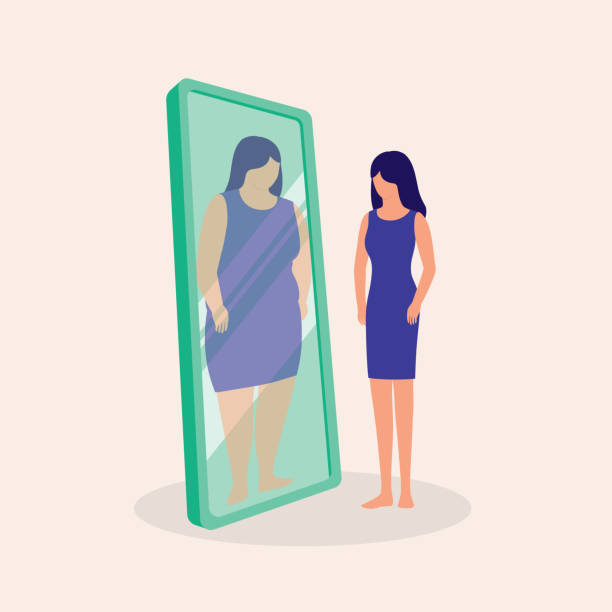A Quick Guide
Anorexia Nervosa is an eating disorder characterized by low body weight, distorted body image, and a fear of gaining weight. Individuals with anorexia restrict their food intake, often to dangerous levels, due to a preoccupation with weight and shape. Anorexia is more common in females, especially in professions that idealize thinness, and typically starts around puberty. Genetic, environmental, and psychological factors play a role in its development. Traumatic experiences and societal pressure to meet unrealistic body standards can contribute to the disorder.
What is Anorexia Nervosa?
Anorexia Nervosa can be a potentially life-threatening eating disorder. It is characterized by a person having a critically low body weight, having distortion in the way they see themselves, and having an extreme fear of gaining weight. Those with anorexia nervosa are quite rigid about controlling their body weight and shape. This can lead them to starve themselves and not recognize that their body weight is excessively low and could be dangerous.
This disorder is diagnosed if a person’s weight falls 15% below their normal body weight. The literal meaning of the term anorexia is “loss of appetite” which is somewhat misleading. It might make you think that these people just simply lose or don’t feel their hunger but that is not the case. They starve themselves out of fear of gaining weight. They may try other things such as restricting their calorie intake by either vomiting after eating or through misuse of laxatives, etc.
So you may question why would they let their body weight fall below the normal range?
That’s because they think they are overweight even when they are going critically underweight in reality. The main issue is that they base their self-worth on how they look and a certain body weight and shape. This can lead them to face a lot of problems in different areas of their lives.
Watch: [Anorexia nervosa – Patient Education]
Who is more prone to Anorexia Nervosa?
While Anorexia can affect any person regardless of age, gender, race, ethnicity, economic status, etc. But research has shown that it is more prevalent in females. Though its rate is rising in men quickly as well. Moreover, those whose profession idealizes thinness such as models, actors, dancers, or athletes like wrestlers, figure skaters, etc are more prone to Anorexia Nervosa.
Anorexia typically begins around puberty though it can develop at any age. Around 9% of the population worldwide has eating disorders. Anorexia is prevalent in about 1 to 2% of people.
Causes of Anorexia
There is no exact cause of anorexia but research suggests that there are several factors at play such as genetics, socio-cultural factors, psychological traits & environmental influences.
Genetics
According to research, 50% and 80% chances of an eating disorder are genetic. Those with first-degree relatives who have an eating disorder are 10 times more likely to have it as well.
Changes in brain chemistry, particularly those affecting the reward system and brain chemicals like serotonin and dopamine may potentially be at play. These chemicals can alter mood, hunger, impulse control, etc.
Furthermore, some genetic abnormalities may put some people at greater risk for anorexia. Some individuals may be genetically predisposed to perfectionism, sensitivity, and perseverance which are all characteristics linked to anorexia.
Environmental Influences
Some cultures that idealize a specific body type, typically “slim” bodies, might put undue pressure on people to meet unattainable body expectations. Thinness is frequently associated with fame, prosperity, beauty, and joy in popular culture and advertising representations these days. A person may become anorexic as a result of this.
Peer pressure, especially for kids and teenagers, could be a powerful influence. Anorexia may develop as a consequence of being the target of taunts, harassment, or ridicule due to appearance or body size.
Traumatic Experiences
Many professionals think that patients who struggle with eating disorders, such as anorexia, do so because they are trying to manage their extreme feelings and overwhelming emotions. Some people may be more susceptible to developing an eating disorder if they have experienced physical or sexual abuse.
Lastly. all of this can result in lowering a person’s self-esteem. They perceive their self-worth based on their appearance only. Or at times, disordered eating becomes a coping mechanism for traumatic or stressful situations.
We hope you found this article useful in understanding more about Anorexia Nervosa, its causes, and which people are more prone to it.



 Healing Your Inner Child: A Short Guide
Healing Your Inner Child: A Short Guide  What You Need to Know About Trauma & its effects
What You Need to Know About Trauma & its effects  Dealing with a Narcissistic Parent: Strategies and Support
Dealing with a Narcissistic Parent: Strategies and Support  Understanding the MBTI Personality Types
Understanding the MBTI Personality Types  Understanding the Big Five Personality Traits
Understanding the Big Five Personality Traits  Body Image: what it entails and how it affects you
Body Image: what it entails and how it affects you